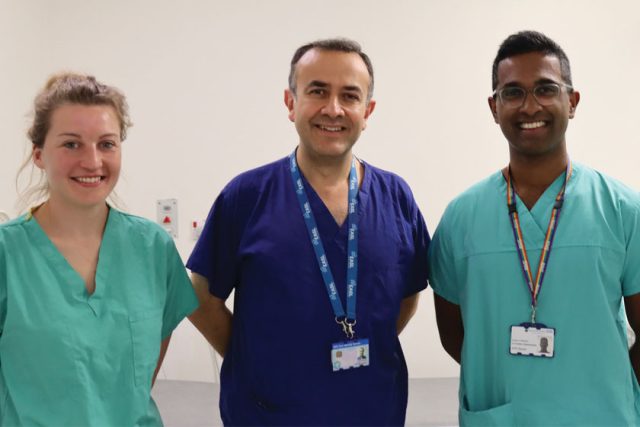Researchers from the Royal Free Hospital have embarked on a mission to unravel an intriguing medical mystery: could patients with liver disease hold vital clues which could predict the likelihood of developing severe complications?
 Funded by a £10,000 grant from the Royal Free Charity, the aim of the research study is to identify biomarkers that could predict the development of liver-related complications such as infection, fluid overload, brain injury, and even death.
Funded by a £10,000 grant from the Royal Free Charity, the aim of the research study is to identify biomarkers that could predict the development of liver-related complications such as infection, fluid overload, brain injury, and even death.
Professor Raj Mookerjee, Royal Free Hospital consultant hepatologist, said: “We don’t currently have good indicators that can tell us if someone with cirrhosis (severe scarring of the liver) will develop serious complications. This is a crucial gap that needs urgent attention to give better care and outcomes for our patients.
“In our laboratory research, we developed some new blood tests that might predict increased risk of complications requiring hospital admission which could result in death, in people with liver cirrhosis.”
“Now we want to validate the potential value of these blood tests. We will use a much larger group of patients’ samples from prior studies, to see if our previous findings hold true. We also want to find out if these blood tests can predict other common complications related to liver disease.
“If our study shows that these blood tests really work, it could make a huge difference in how we manage liver disease. It might even help guide us to apply treatment early, to prevent further progression of their disease, which could improve the lives of people with liver cirrhosis and help them live better and longer.”
Liver disease is a serious health concern worldwide, with cirrhosis being a leading cause of illness and mortality. In the UK it ranks as the fifth highest cause of death.
Cirrhosis cannot usually be cured, but there are ways to manage the symptoms and stop the condition getting worse.
